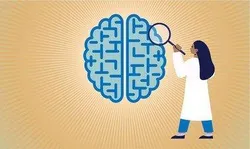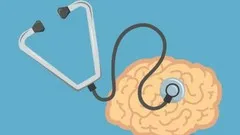
Behavioral Neuroscience: Analyzing Anxiety and Depression 
This course provides an introduction to the study of anxiety and depression in laboratory mice. Students will learn to use behavioral tests to measure anxiety and depression in different mouse strains, including compulsive-like, non-compulsive-like, and randomly bred mice. Data will be collected from mouse videos and used to analyze the effects of anxiety and depression on behavior. ▼
ADVERTISEMENT
Course Feature
![]() Cost:
Cost:
Free
![]() Provider:
Provider:
Edx
![]() Certificate:
Certificate:
Paid Certification
![]() Language:
Language:
English
![]() Start Date:
Start Date:
Self paced
Course Overview
❗The content presented here is sourced directly from Edx platform. For comprehensive course details, including enrollment information, simply click on the 'Go to class' link on our website.
Updated in [March 06th, 2023]
Unlock the Exciting World of Learning! Here's What Awaits You:
This online course in behavioral neuroscience provides learners with the opportunity to explore the research behind mental health conditions such as anxiety and depression. Through this course, learners will gain a comprehensive understanding of the use of different behavioral tests for anxiety and depression in laboratory mice, and how these tests can affect the interpretation of results. Learners will also be able to collect behavioral data from mouse videos from compulsive-like, non-compulsive-like, and randomly bred mouse strains, and develop an ability to analyze and interpret the data in the context of human psychiatric disorders and the mouse model of OCD. Additionally, learners will gain a competency in describing key characteristics of anxiety and depression in humans and in animal models, and develop the capability to formulate original research hypotheses. Finally, learners will gain an understanding of how basic research, as performed in this certificate program, contributes to the animal model of OCD and how it may have the potential to contribute to a better understanding of mental health and improving healthcare and the human condition. Join this course to gain a comprehensive understanding of the research behind mental health conditions and the use of animal models in research.
[Applications]
Upon completion of this course, learners will be able to apply their knowledge to analyze anxiety and depression in laboratory mice, evaluate the use of different behavioral tests, collect behavioral data, interpret and discuss results in the context of human psychiatric disorders, compare and contrast compulsive-like, anxiety-like, and depression-like behaviors in mice to equivalent conditions in humans, and formulate original research hypotheses. They will also be able to describe key characteristics of anxiety and depression in humans and in animal models, and discuss how basic research contributes to the animal model of OCD and how it may have the potential to contribute to a better understanding of mental health and improving healthcare and the human condition.
[Career Paths]
Job Position Paths:
1. Clinical Psychologist: Clinical psychologists assess, diagnose, and treat mental, emotional, and behavioral disorders. They use a variety of therapeutic techniques to help individuals, couples, families, and groups of people. Clinical psychologists are in high demand and the field is expected to grow by 14% over the next decade.
2. Mental Health Counselor: Mental health counselors provide counseling and therapy to individuals, couples, and families. They help people cope with mental health issues, such as depression, anxiety, and substance abuse. Mental health counselors are in high demand and the field is expected to grow by 22% over the next decade.
3. Psychiatric Nurse: Psychiatric nurses provide care to individuals with mental health issues. They assess, diagnose, and treat mental health conditions. Psychiatric nurses are in high demand and the field is expected to grow by 16% over the next decade.
4. Neuropsychologist: Neuropsychologists specialize in the study of the brain and behavior. They use a variety of techniques to assess, diagnose, and treat mental health conditions. Neuropsychologists are in high demand and the field is expected to grow by 17% over the next decade.
[Education Paths]
Recommended Degree Paths:
1. Bachelor of Science in Behavioral Neuroscience: This degree program provides students with a comprehensive understanding of the biological, psychological, and social aspects of behavior. Students will learn about the brain and nervous system, as well as the development of behavior and its impact on mental health. This degree program also covers topics such as cognitive neuroscience, neuropsychology, and psychopharmacology. This degree is ideal for those interested in pursuing a career in research, clinical practice, or teaching in the field of behavioral neuroscience.
2. Master of Science in Neuroscience: This degree program provides students with a comprehensive understanding of the biological, psychological, and social aspects of behavior. Students will learn about the brain and nervous system, as well as the development of behavior and its impact on mental health. This degree program also covers topics such as cognitive neuroscience, neuropsychology, and psychopharmacology. This degree is ideal for those interested in pursuing a career in research, clinical practice, or teaching in the field of neuroscience.
3. Doctor of Philosophy in Neuroscience: This degree program provides students with a comprehensive understanding of the biological, psychological, and social aspects of behavior. Students will learn about the brain and nervous system, as well as the development of behavior and its impact on mental health. This degree program also covers topics such as cognitive neuroscience, neuropsychology, and psychopharmacology. This degree is ideal for those interested in pursuing a career in research, clinical practice, or teaching in the field of neuroscience.
4. Doctor of Psychology in Behavioral Neuroscience: This degree program provides students with a comprehensive understanding of the biological, psychological, and social aspects of behavior. Students will learn about the brain and nervous system, as well as the development of behavior and its impact on mental health. This degree program also covers topics such as cognitive neuroscience, neuropsychology, and psychopharmacology. This degree is ideal for those interested in pursuing a career in research, clinical practice, or teaching in the field of behavioral neuroscience.
Developing Trends:
1. The use of technology in behavioral neuroscience is becoming increasingly popular. This includes the use of virtual reality, artificial intelligence, and machine learning to study behavior and mental health.
2. The use of animal models in behavioral neuroscience is also becoming more popular. This includes the use of mice, rats, and other animals to study behavior and mental health.
3. The use of genetics and genomics in behavioral neuroscience is also becoming more popular. This includes the use of genetic sequencing and gene expression analysis to study behavior and mental health.
4. The use of neuroimaging in behavioral neuroscience is also becoming more popular. This includes the use of MRI, PET, and other imaging techniques to study behavior and mental health.
Course Provider

Provider Edx's Stats at AZClass
Discussion and Reviews
0.0 (Based on 0 reviews)
Explore Similar Online Courses

Post-Traumatic Stress Disorder (PTSD) in the Global Context

Punch Needle Techniques for Home Decorations

Python for Informatics: Exploring Information

Social Network Analysis

Introduction to Systematic Review and Meta-Analysis

The Analytics Edge

DCO042 - Python For Informatics

Causal Diagrams: Draw Your Assumptions Before Your Conclusions

Whole genome sequencing of bacterial genomes - tools and applications

Control Your Subconscious Mind: Neuroscience Hidden Secrets

Perform an Excellent Neurological Bedside Exam

Brain and Behavioral Science Fundamentals
 Related Categories
Related Categories
 Popular Providers
Popular Providers
Quiz
 Submitted Sucessfully
Submitted Sucessfully
1. What is the main focus of this course?
2. What is the primary goal of this course?
3. What is a requirement for enrolling in this course?


Start your review of Behavioral Neuroscience: Analyzing Anxiety and Depression